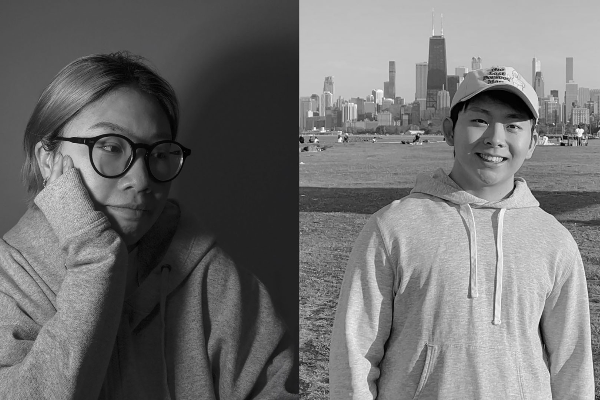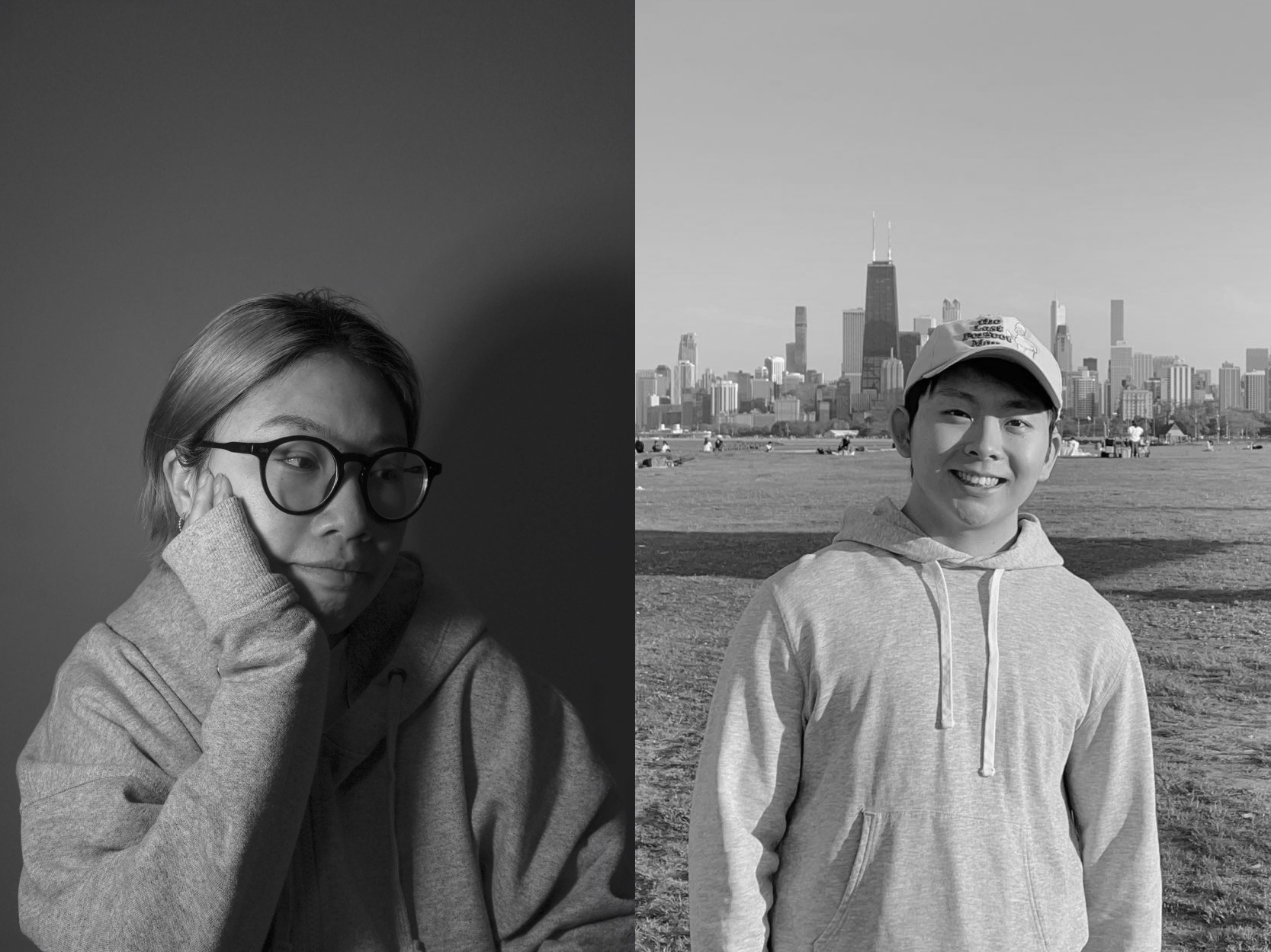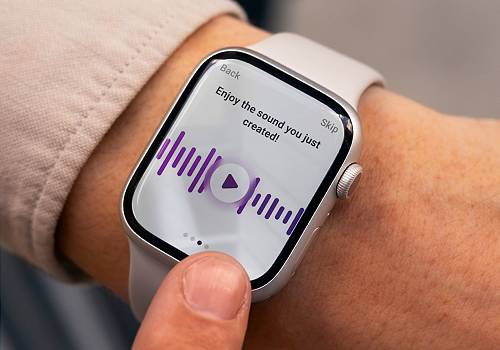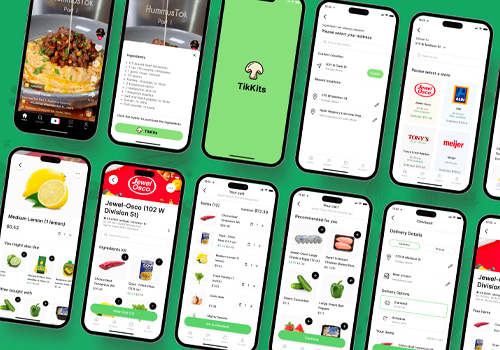
Hui Jing and Jinda Zhong
1. Please give us a brief bio of yourself and your background.
We are Hui Jing and Jinda Zhong, both UX designers based in the United States. We both have backgrounds in graphic design & human-computer interaction Design, which has provided us with strong visual design and human-centered design skills.
We are passionate about creating user-centered designs that connect technology with human needs. Our work aims to bridge the gap between functionality and aesthetics, ensuring that our designs are both useful and delightful.
2. What made you become/why did you choose to become a product designer?
Our journey into product design stemmed from our passion for solving real-world problems through design. We believe that design is a powerful tool that can enhance everyday experiences and make technology more accessible. The desire to create meaningful and impactful products that improve people's lives drove us to become great UX/product designers.
3. Tell us more about your business/company, job profile, and what you do.
We work as UX designers in the United States, focusing on creating intuitive and engaging user experiences. Our roles involve researching user needs, developing wireframes and prototypes, and collaborating with cross-functional teams to bring our designs to life. Our work spans various industries, allowing us to explore different design challenges and innovate solutions that cater to diverse user groups.
4. What does “design” mean to you?
To us, design is the process of solving problems creatively and effectively. It is about understanding users' needs and crafting solutions that are not only functional but also enjoyable to use. Design is a bridge that connects technology to people, making complex systems accessible and intuitive.
5. What’s your favorite kind of design and why?
Our preferred design approach is user-centered design because it prioritizes the needs and experiences of users. We believe that the best designs are those that enhance people's lives, making them easier and more enjoyable. User-centered design ensures that the final product is tailored to the end user, combining functionality with aesthetic appeal.
6. To you, what makes a “good” design?
A good design is one that meets the needs of its users while being aesthetically pleasing and easy to use. It should be intuitive, accessible, and inclusive, ensuring that all users can benefit from it. Good design solves problems effectively and provides a seamless experience, leaving users feeling satisfied and empowered.
7. Describe your design style and its main characteristics.
Our design style is characterized by simplicity, clarity, and user-friendliness. We focus on clean lines, intuitive interfaces, and thoughtful details that enhance the overall user experience. Our goal is to create designs that are not only visually appealing but also highly functional and easy to navigate.
8. Tell us about your design process.
Our design process begins with thorough research to understand the problem and the needs of our users. We then brainstorm and sketch ideas, creating wireframes and prototypes to visualize our concepts.
We test our designs with real users, gathering feedback and iterating until we achieve the best possible solution. Collaboration and continuous improvement are key elements of our process.
9. Do you think your country and its cultural heritage has an impact on your design process?
Yes, our cultural heritage has a significant impact on our design process. Growing up in China and later working in the United States has given us a unique perspective that blends Eastern and Western design philosophies.
This multicultural background allows us to approach problems from different angles and incorporate diverse elements into our designs, resulting in more innovative and inclusive solutions.
10. Congratulations! As the winner of the 2024 NY Product Design Awards, what does it mean to you and your company and team to receive this award distinction?
Winning in the 2024 NY Product Design Awards is a tremendous honor for us and our team. It validates our hard work, creativity, and dedication to creating user-centered designs. This recognition not only boosts our morale but also reinforces our commitment to delivering innovative and impactful solutions.
11. Can you explain a bit about the winning work you entered into the 2024 NY Product Design Awards, and why you chose to enter this project?
Our winning entries are Upband, TikKits, and TravelBot. These projects focus on the challenges people face in the post-pandemic world and the slow recovery process. Each project addresses the unique needs of different groups affected by the pandemic.
Upband is designed to help people combat the physical health issues caused by prolonged periods of staying at home, such as obesity and anxiety. By turning physical activity into a musical experience, Upband promotes exercise and helps people regain their health and well-being in a fun and interactive way.
TikKits leverages the rapid growth of grocery delivery services and platforms like TikTok during the pandemic. It merges the excitement of culinary short videos with the convenience of meal kit deliveries. TikKits encourages people to explore cooking at home, eat healthily, and enjoy the process of making food.
TravelBot addresses the specific needs of graduate students who must travel frequently for onsite classes after the pandemic. These students often need help with scheduling flights and finding accommodations. TravelBot acts as a personal travel assistant, making travel planning more efficient and less stressful for them.
We chose to enter these projects because they reflect our commitment to addressing real-world problems through design. Each project represents a positive continuation of the pandemic's impact, helping different groups navigate and adapt to the new normal.
12. What was the biggest challenge with this project?
The biggest challenge with these projects was ensuring that they were intuitive and accessible to a wide range of users. For Upband, it was about seamlessly integrating motion-tracking technology with musical creation in a way that felt natural and engaging.
With TikKits, the challenge was creating a smooth and efficient process for linking online content with real-world meal preparation. For TravelBot, we had to develop an intelligent system that could effectively balance users' academic schedules with their travel needs. Overcoming these challenges required extensive user testing, iteration, and a deep understanding of our users' needs.
13. How has winning an award developed your practice/career?
Winning an award has significantly impacted our practice and careers. It has enhanced our credibility and visibility in the design community, opening up new opportunities for collaboration and growth. The recognition has also boosted our confidence and encouraged us to continue exploring innovative solutions.
It serves as a reminder of the importance of user-centered design and reinforces our commitment to creating designs that make a positive difference in people's lives.
14. What are your top three (3) favorite things about our industry?
Our top three favorite things about the UX design industry are its dynamic nature, the constant innovation, and the focus on user-centric solutions. The UX design industry is always evolving, which keeps our work exciting and challenging. Innovation is at the heart of what we do, driving us to find creative solutions to complex problems.
Lastly, the focus on user-centric solutions ensures that we are always prioritizing the needs and experiences of our users, making our designs both functional and enjoyable.
15. What makes your country specifically, unique in the design industry?
China's rich cultural heritage and rapid technological advancement make it unique in the design industry. The blend of traditional aesthetics with cutting-edge technology creates a distinctive design landscape that is both diverse and innovative.
Additionally, China's emphasis on efficiency and large-scale production allows designers to experiment with new ideas and bring them to life quickly and effectively.
16. Where do you see the evolution of design industry going over the next 5-10 years?
Over the next 5-10 years, we see the design industry increasingly integrating advanced technologies such as artificial intelligence, augmented reality, and virtual reality. However, as these technologies evolve, it becomes even more crucial to emphasize the human element in design. We believe that content design will become paramount, ensuring that technology serves to enhance human experiences rather than overshadow them.
Designers will need to focus more on creating meaningful and engaging content that resonates with users on a deeper level, maintaining a balance between technological advancements and human-centered design principles.
17. If you were a student entering this industry or an aspiring NY Product Design Awards submitter, what advice would you give them?
Our advice to students entering the industry or aspiring NY Product Design Awards submitters is to stay curious and open-minded. Always seek to understand the needs and experiences of your users, and don't be afraid to experiment with new ideas.
Build a strong foundation in the fundamentals of design, but also stay updated on the latest trends and technologies. Lastly, network and collaborate with others in the industry, as these connections can provide valuable insights and opportunities.
18. What resources would you recommend to someone who wants to improve their skills in the design industry?
To improve skills in the design industry, we recommend online courses from platforms like Coursera, Udemy, and LinkedIn Learning. In addition, we highly recommend focusing on enhancing soft skills. Improving storytelling abilities is crucial for effectively communicating your design ideas and concepts. Building strong relationships with others in the industry can provide valuable insights and opportunities for collaboration.
Additionally, working on enhancing your aesthetic sensibilities through activities such as studying art, photography, and nature can significantly improve your design work. Attending workshops and conferences, participating in design communities, and seeking mentorship from experienced designers are also excellent ways to grow and refine your skills.
19. Tell us something you have never told anyone else.
One thing we've never shared is that we both have a passion for music and often find inspiration for our designs through musical experiences. This love for music played a significant role in the creation of Upband, merging our interests in a way that benefits our users.
20. Who has inspired you in your life and why?
The changes in the world post-pandemic have been a significant source of inspiration for us. The pandemic highlighted the importance of adaptability, resilience, and the need to address new challenges with innovative solutions.
Observing how people adjusted to new ways of living, working, and interacting has profoundly influenced our approach to design. It has inspired us to create products that are not only functional but also cater to the evolving needs of society, ensuring that our designs help people navigate and thrive in this new reality.
21. What is your key to success? Any parting words of wisdom?
Our key to success is staying true to our values of user-centered design and continuous learning. Always prioritize the needs of your users and be open to feedback and iteration. Our parting words of wisdom are to remain passionate and curious, embrace challenges as opportunities for growth, and never stop striving for excellence in your craft.




